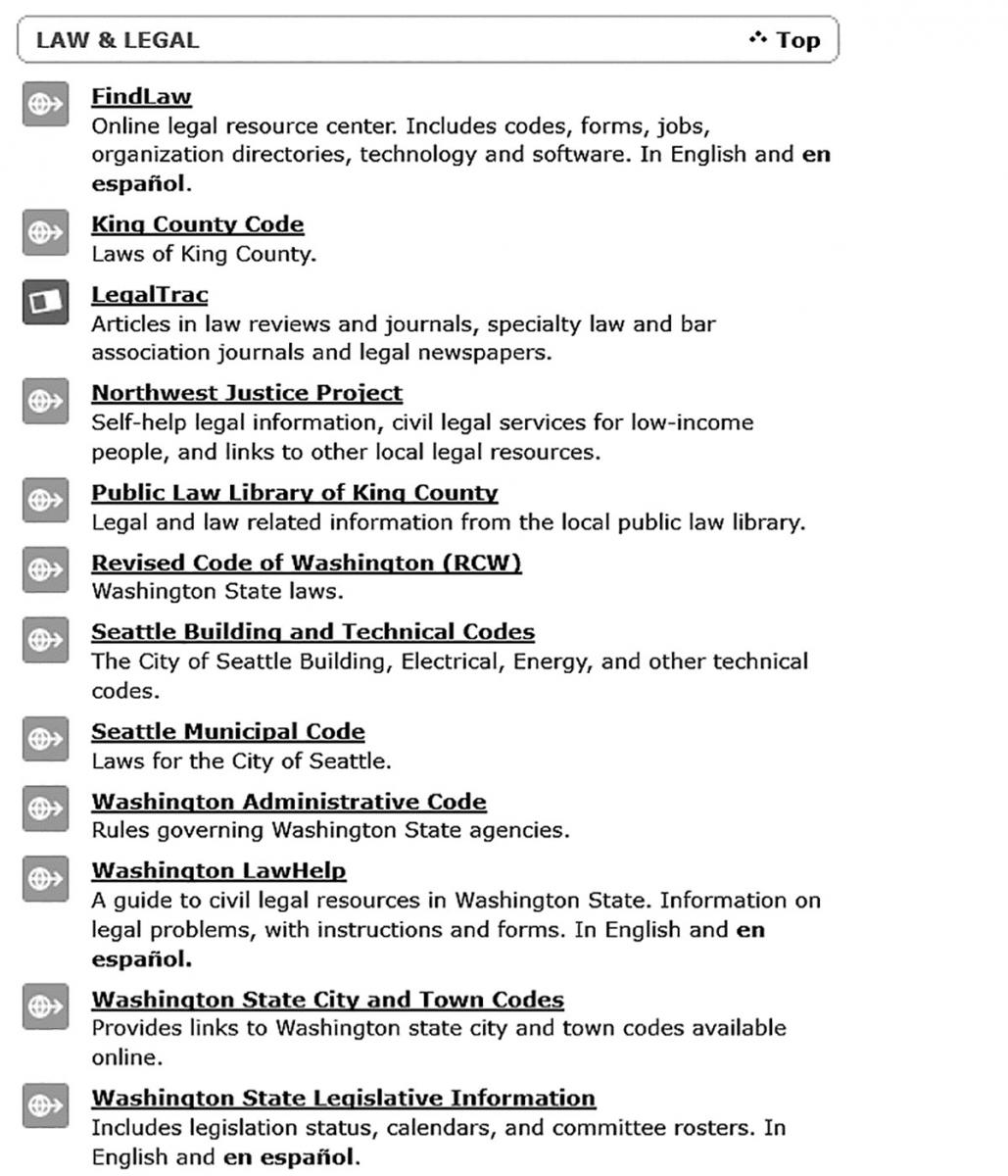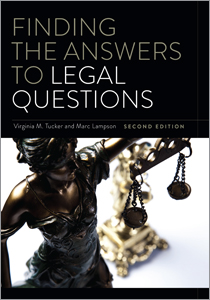Finding answers to legal questions: an interview with Virginia M. Tucker and Marc Lampson
More people than ever are using the library to obtain legal information and legal research advice, and library staff need to be able to serve these users efficiently and confidently. Veteran law librarians Virginia M. Tucker and Marc Lampson just published an update of Finding the Answers to Legal Questions, their benchmark text. We caught up with them to hear their perspective on what's new in the field and to get some handy reference tips.
About seven years elapsed between the first edition and this new second edition. When it comes to legal information, what do you think have been the biggest changes in the landscape?
It appears to us that all law libraries - academic, government, public - continue to cut back on subscriptions to hard copy resources, so people with limited resources for paid, online research are left more and more out of the information cycle, at least for value-added secondary sources. On the other hand, "free" online sources from the federal and state governments have continued to improve in terms of availability, timeliness, reliability, and to some extent, searchability.
In many ways, a legal reference interview can be one of the trickiest interactions library staff can face. Can you offer some tips that staff can use up front to smooth the way for a successful encounter?
Often people think they have a legal problem, in part resolvable by finding the law, when in fact they don't have a problem for which the law can provide a remedy. Conversely, people often do not recognize that at  the root of a life problem is a legal problem. We think this is particularly true in health care sorts of problems. So the first and perhaps trickiest question is to try to verify that the problem the patron is presenting you with is in fact one that can be researched in the law. Once that question is answered, the sailing should be smoother.
the root of a life problem is a legal problem. We think this is particularly true in health care sorts of problems. So the first and perhaps trickiest question is to try to verify that the problem the patron is presenting you with is in fact one that can be researched in the law. Once that question is answered, the sailing should be smoother.
In your book, you make it a point to differentiate legal advice from legal information. Why?
The book is directed, at least in part, to librarians or students soon to be librarians. Traditionally, librarians have been prohibited from providing legal advice. A librarian can lead a patron to the source, but not interpret or advise on how to use that source. Therefore, when helping someone with a legal question, a librarian has to keep in mind the distinction between advice and information. Often, the line is clear. Sometimes, it is not.
Marc Lampson: My position as the Public Services Attorney at a public law library was designed to overcome this conundrum because as both lawyer and librarian I could help people not only find the law but work with them, for instance, in finding appropriate documents or forms and filling them out and telling them how to proceed.
Sometimes library staff will realize during an interview that the patron is going to need assistance that's beyond the purview of the library, such as finding a lawyer or free legal help. What advice can you offer about connecting a patron to these resources? And how can libraries familiarize themselves with the organizations that exist in their communities?
The safest, surest path is to find out if your county has a bar association. County bar associations, at least in more populated areas, will frequently provide free legal clinics for people and will also provide lawyer referrals. These referrals are fairly reliable because they are not motivated by the organization's profit motive, of which there usually isn't one, because these organizations are usually nonprofits. If the county does not have a robust bar association, the next possibility is the state bar association. There will be one in every state. These will not always have lawyer referral services, but will often have searchable lists of active attorneys, sometimes  searchable by legal specialty or legal focus of the attorney or firm. A library can familiarize themselves with these organizations through good online searching, but also a number of the legal services organizations in the community may list various agencies in the area that can provide legal assistance. These organization often maintain a website with "Law Help" in the name, often preceded by the name of the state, e.g., Washington Law Help, or just to be contrary Law Help California. If you cannot locate one of these sites for your state quickly and easily, you can track one down by going to Pro Bono Net..
searchable by legal specialty or legal focus of the attorney or firm. A library can familiarize themselves with these organizations through good online searching, but also a number of the legal services organizations in the community may list various agencies in the area that can provide legal assistance. These organization often maintain a website with "Law Help" in the name, often preceded by the name of the state, e.g., Washington Law Help, or just to be contrary Law Help California. If you cannot locate one of these sites for your state quickly and easily, you can track one down by going to Pro Bono Net..
What are some ways librarians can keep up to date with changes in legal information and sources?
Other librarians, always. And any law library/librarian organizations, local and national. Join them. For example, in Marc's area there is the Law Librarians of Puget Sound (LLOPS). Nationally, the "big one" is the American Association of Law Libraries. A "standard" in the field is the Legal Information Buyer's Guide & Reference Manual by Kendall F. Svengalis, available at www.nelawpress.com.
Learn more at the ALA Store.
